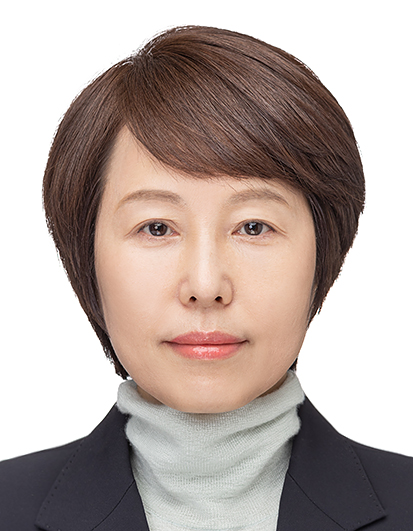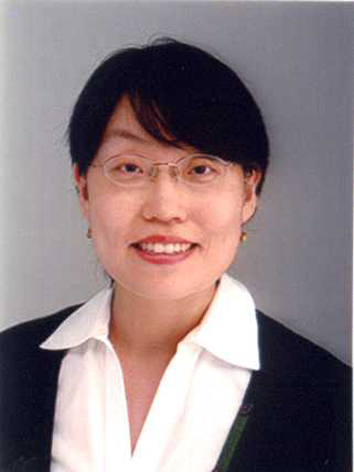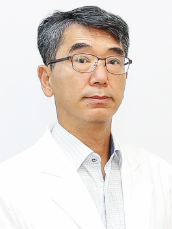Hong, Seong-Cheol Professor

| Career and thesis | |
|---|---|
| Education | Department of Biological Sciences, College of Natural Science, Ewha Womans Univesrity -bachelor.
Department of Public Health(Epidemiology), Graduate school of Public Health, Seoul National University, - Master's degree Department of Public Health(Molecular Epidemiology), Graduate school of Public Health, Seoul National University- Ph.D |
| Major career | Department of Preventive medicine, College of Medicine, Cheju National University |
| main paper | 1. Chromosomal aberrations in workers exposed to low levels of benzene : association with genetic polymorphisms, Pharmacogenetics, 2004;14(7)
:453-463 2. Anti-inflammatory Effect of Bee Venom on Type II Collagen-Induced Arthritis, The American Journal of Chinese Medicine, 2004; 32(3):361-367 3. BMI and Stroke Risk in Korean Women.Obesity (Silver Spring).2008; 16(2),:396-401 4. A Study of TNF-α(308) Gnetic polymorphism and Risk Factors Associated with Rheumatoid Arthritis by Sasang Constitution, The Jou구미 of Korean Acupuncture & Moxibustion Society, 2007, 137-150. 5.Biological Profiles of Korean Atomic Bomb Survivors in Residence at Daegu and Kyungbuk, Republic of Korea, J.Korean Med Sci 2008: 23: 1090-3 |

| Career and thesis | |
|---|---|
| Education | - Ph.D. in Preventive Medicine, Jeju National University College of Medicine, Republic of Korea (2010.3-2012.8)
Dissertation “Path analyses in Cardiocerebrovascular disease related Preventive Health Behaviors among the Elderly” - Master of Science in Health Policy, Planning and Financing, London School of Hygiene & Tropical Medicine, and London School of Economics, London, U.K. (2002.9-2003.7) - M.D., KyungHee University School of Medicine, Seoul, Republic of Korea (1992.3-1998.2) |
| Major career | - Principal Investigator, Ko-CHENS Jeju Regional Center, commissioned by - the National Institute of Environmental Research (NIER), the Ministry of Environment, Republic of Korea (2022.1-present)
- Director of Jeju Regional CardioCerebroVascular Diseases Prevention and Management Center, Jeju National University Hospital, Republic of Korea (2017.11-present) - President of the Jeju Public Health Center, Jeju Special Self-Governing Providence, Republic of Korea (2015.11-2017.11) - Professor/ Associate Professor/ Assistant Professor/ Lecturer of Preventive Medicine, Jeju National University College of Medicine, Republic of Korea (2021.4-present/ 2015.4-2021.3/ 2012.7-2015.3/2010.9-2012.7) - Clinical Assistant Professor of Preventive Medicine, Jeju National University Hospital, Republic of Korea (2010.3-2010.9) - Resident in Preventive Medicine, Department of Preventive Medicine, Graduate School of Public Health, Seoul National University, Republic of Korea (2007.3-2010.2) - Researcher, the department of Health Services Management, Korea Health Industry Development Institute, Seoul, Republic of Korea (2004.5-2006.12) - Internship, the department of Ethics, Trade and Human right (ETH), WHO HQ, Geneva, Switzerland (2003.11-2004.1) Working paper “Trade in Health Services Country Profile: South Korea” (single author) - Medical Coordinator, Mercy Ships International ‘Mercy Ships’ is a global charity NGO, using hospital ships to deliver free, world-class health care services, capacity building and sustainable development aid to those without access in the developing world. https://www.mercyships.org/international/ , Freetown, Sierra Leone, West Africa (2001.1-2002.2) - General Physician, Chungrani Mental Hospital, Seoul, Republic of Korea (1999.3-2000.5) - Transitional Year Program (Intern), Catholic University St. Mary’s Hospital, Seoul, Republic of Korea (1998.3-1999.2) |
| main paper | 1. Kong MH, Song JK: Sex and age differences in depressive symptoms among older adults in Jeju, Korea: an analysis of the 2017 Community Health Survey data. https://doi.org/10.22730/jmls.2025.05.09 [Epub ahead of print] Published online June 19, 2025.
2. Oh M, Kim M, Song JK, Hong SC: Prevalence and aeroallergen sensitization in pediatric Allergic Rhinitis: A population-based study in Jeju, Korea. PloS One 2025;20(6): e0326070. https://doi.org/10.1371/journal.pone.0326070 3. Kang KS, Song JK: Population-based prevalence of rare diseases in Jeju, Korea: a 2021 analysis using NHIS data. J Med Life Sci. 2025;22(2):69-80. https://doi.org/10.22730/jmls.2025.22.2.69. 4. Ku MJ, Maeng YH, Chang JW, Song JK, Kim YR. Stasis and Inflammation in Varicose Vein Development: An Interleukin-Mediated Process from Intima to Media. J Vasc Res. 2024; 20:1-8. Doi:10.1159/000539861. 5. Yoo SJ, Kang H, Kim B, Lee CH, Song JK, Choi S. Which is better? Early versus delayed rehabilitation after arthroscopic rotator cuff repair. Knee Surg Sports Traumatol Arthrosc. 2024;1–9. doi:10.1002/ksa.12129. 6. Park S, Choi J, Song JK. et al.: Subcellular expression pattern and clinical significance of CBX2 and CBX7 in breast cancer subtypes. Med Mol Morphol 2023, 57(1):11-22.. 7. Woo S, Song HJ, Song JK. et al.: Parent and child characteristics associated with treatment non-response to a short- versus long-term lifestyle intervention in pediatric obesity. Eur J Clin Nutr 2023, 77:127-134. 8. Lee HJ, Song JK, Moon J, Kim K, Park HK, Kang GW, Shin JH, Kang J, Kim BG , Lee YH, Jeong HS, Lee H, Lee WK, Kim S, Park YK: Health-related quality of life using WHODAS 2.0 and associated factors 1year after stroke in Korea: a multi-centre and cross-sectional study. BMC Neurol 2022, 22(1): 501-508. 9. Kang NR, Kwack YS, Song JK, et al.: The intergenerational transmission of maternal adverse childhood experiences on offspring’s psychiatric disorder and the mediating role of maternal depression: Results from a cross sectional study. Clinical Child Psychology and Psychiatry. 2022, 27(3):613-629. 10. Kang NR, Kwack YS, Song JK, et al.: The Impact of Maternal Adverse Childhood Experiences on Offspring’s Internalizing and Externalizing Problems. Psychiatry Investig. 2021, 18(11):1050-1057. 11. Kang H, Rho JY, Song JK, Choi J, Kwon YS, Choi S: Comparison between intramedullary nailing and minimally invasive plate osteosynthesis for tibial shaft fractures. Injury. 2021, 52(4):1011-1016. 12. Park YG, Kang H, Song JK, Lee J, Rho JY, Choi S: Minimally invasive plate osteosynthesis with dual plating for periprosthetic distal femoral fractures following total knee arthroplasty. J Orthop Surg Res. 2021, 16(1):433. 13. Song JK, Koh KW, Lim YH: The development of European healthy cities and its implications for healthy cities in Korea. Korean J Health Educ Promt 2021, 38(1):49-62. (Korean) 14. Kang H, Song JK, Rho JY, Lee J, Choi J, Choi S: Minimally invasive plate osteosynthesis (MIPO) for mid-shaft fracture of the tibia (AO/OTA classification 42): A retrospective study. Ann Med Surg (Lond). 2020, 11(60):408-412. 15. Lee J, Lee S, Chang JW, Kim SW, Song JK: Clinical Value of Intraoperative Flow Measurements of Brachiocephalic Arteriovenous Fistulas for Hemodialysis. Korean J Thorac Cardiovasc Surg. 2020, 53(3):121-126. 16. Song JK, Koh KW, Kim HS: The physical activity sector of Korean National Health Plan: Changes in four previous health plans and future direction. Korean J Health Educ Promt 2020, 37(1):45-56. (Korean) |













 예비대학생
예비대학생 재학생
재학생 졸업생
졸업생 일반인
일반인 교직원
교직원